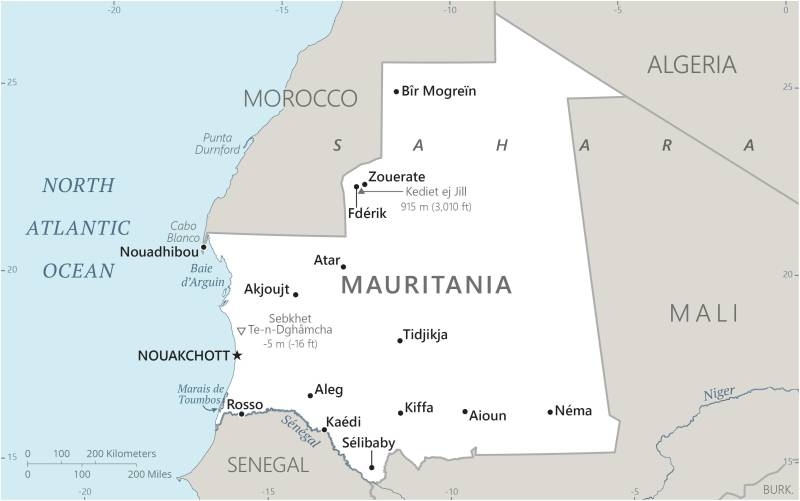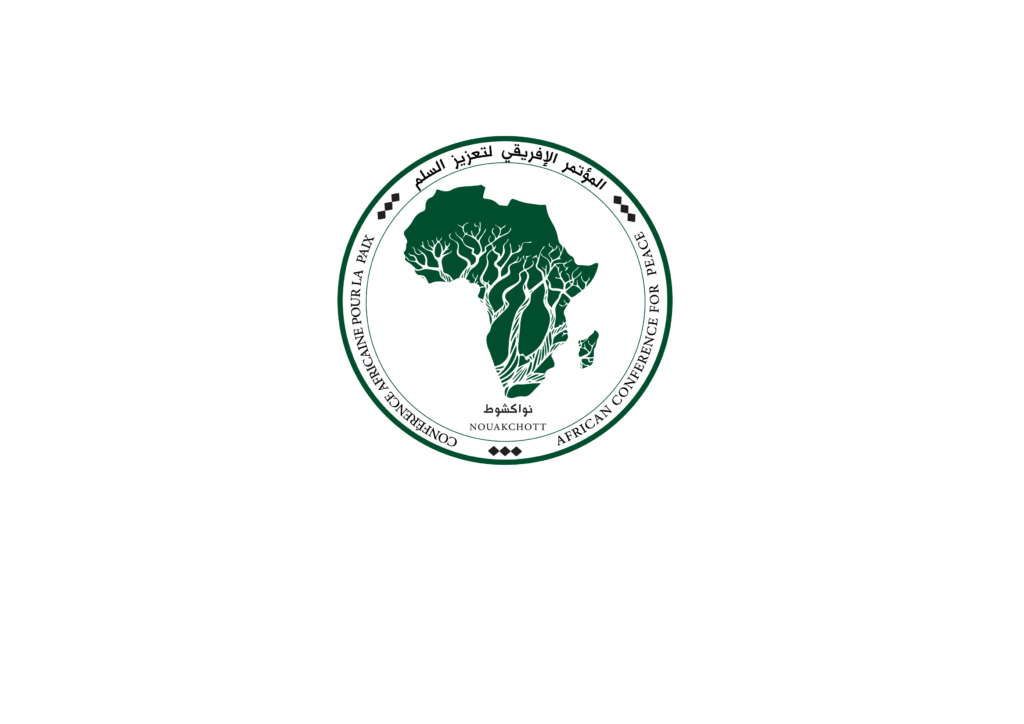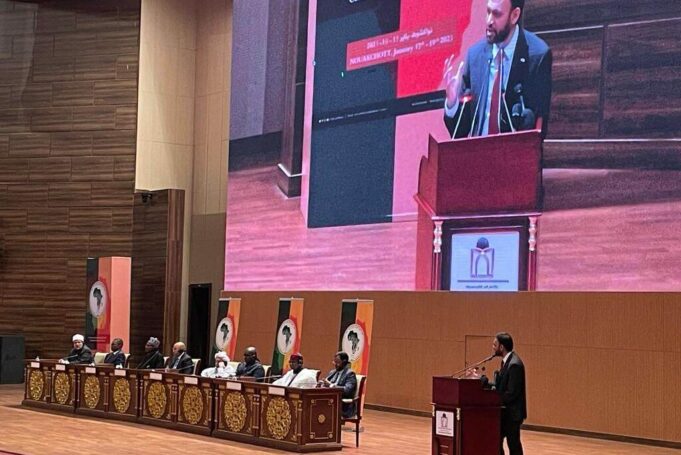Highlights from the keynote address of Ambassador-at-Large Rashad Hussain at the Africa Peace Conference on January 17. Photo: mr.usembassy.gov
“O you who believe, enter into complete peace. …” —Holy Qu’ran, Surah 2, Verse 108

The 3rd annual African Peace Conference 2023 at the Al-Mourabitoune Congress Palace in the Islamic Republic of Mauritania and hosted by President Mohamed Ould Cheikh El-Ghazouani recently concluded. The conference focused on extremism attributed to Islam and overcoming “religious-based terrorism and violence on the (African) continent.”
Initiated as a joint venture between the Mauritanian government and the Abu Dhabi Forum for Peace in January 2020, the conference claims it has established itself “as the most important event in Africa in the fight against extremist and radical discourses based on the canonical texts of Islam.” The gathering took its theme, “Enter All In Peace,” from a portion of the Qur’an in Surah 2 verse 208.
One of the conference organizers, who preferred to remain anonymous, responded via email to questions posed by Africa Watch about the gathering. The person stated that the conference, held Jan. 17-19, “focused on the importance of uniting the continent’s Ulama (scholars) in a single united block [sic], which will block fanatical and violent currents, and support the efforts of governments to form an intellectual front to defend their territories, to preserve the integrity of religions, to reassure everyone and to put an end to armed conflicts exacerbated by injustices, hostile attitudes and hateful feelings, conflicts to which ignorance, misunderstanding or greed try to confer a religious legitimacy without any basis.”

Prominent guests and presenters from across the continent attending the conference included President Muhammadu Buhari of Nigeria; President Mohammed Bazoum of Niger; President Paul Kagame of Rwanda; HE Dr. Mohamed Mokhtar Gomaa, Minister of Religious Endowments of Egypt; the UN International Justice Council and the Special Advisor to the Higher Committee of Human Fraternity, Adama Dieng; U.S. Ambassador at Large for International Religious Freedom, Rashad Hussain; Imam Mohamed Magid, Executive Imam of All Dulles Area Muslim Society in U.S. and Rashad Hussain, U.S. Ambassador-at-Large for International Religious Freedom. In addition, the Organization of Islamic Cooperation (OIC) sent representatives.
And though Rashad Hussain, the U.S. representative who works out of the State Department,
delivered the keynote address, it was Rwandan President Kagame’s remarks that set the stage at the conference. In 1994 his country suffered when the U.S. under the Bill Clinton administration decided against getting involved.
Kagame began his remarks by equating peace as the backbone of Africa’s sustainable development. “For stability building, strong institutions to establish unity and trust (has to become) top priority,” he stated. “Preserving peace however is a collective effort,” Kagame added. He proclaimed “terrorism and extremism” as a plague engulfing Africa. “This plague is crossing borders, spreading rapidly causing harm to communities worldwide,” said Kagame, before adding, “Africa is no exception.”
He then spoke about Rwanda’s post-conflict reconstruction. “This is why as a country we have made a deliberate choice to contribute to counter-terrorism and post-conflict reconstruction on our continent.”

He also spoke on Africa as a part of an interconnected global reality. “We live in a more globalized and interconnected world. There is no one size fits all solution to this challenge because the context matters. ‘The African Peace Conference’ is an opportunity to strengthen cooperation. What Africa needs … is (the) political will to put its resources together to address the root causes.”
Kagame concluded by saying this can only be done with “peace and security” in order for Africa to address its challenges, such as climate change, migration and food insecurity. Doing so would make Africa more resilient against future shocks, he explained. “We owe this to our youth, the future of our continent.” The president also raised the important question of, “whether we can put our differences aside (and) work with one another as equal partners?”
President Buhari expanded on Kagame’s remarks concerning Africa’s increasing youth population. He urged leaders “to place a premium on youth development, with more actionable ideas in promoting skills acquisitions, while discouraging idleness,” reported the Nigerian publication, Vanguard. At the conference, Buhari was awarded by the Abu Dhabi Peace Forum with an “Award for Strengthening Peace in Africa.”
Buhari said fighting insurgents has meant spending money that should be spent on education on equipping the military with arms to fight against groups like “Boko Haram insurgency.”
“Ideally, these are resources that could be spent on education, healthcare, infrastructure and other social services, but without peace, we have learned the hard way that our children cannot go to school or seek good healthcare,” he said.
Promoting Peace in Muslim Societies in Abu Dhabi, Shaykh Abdallah Bin Bayyah said, the 2023 conference theme was based on the recommendations of the “Nouakchott Declaration” that emerged from the inaugural conference. The declaration aims to deconstruct the religious basis of extremist speeches and to limit violence based on religious arguments.
Follow @JehronMuhammad on Twitter













